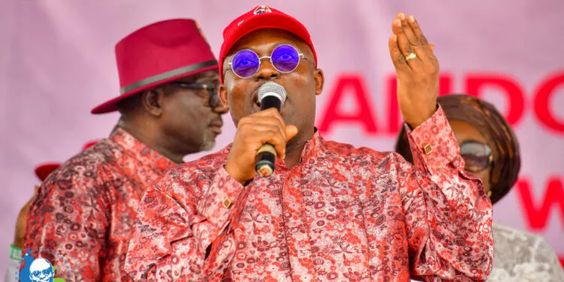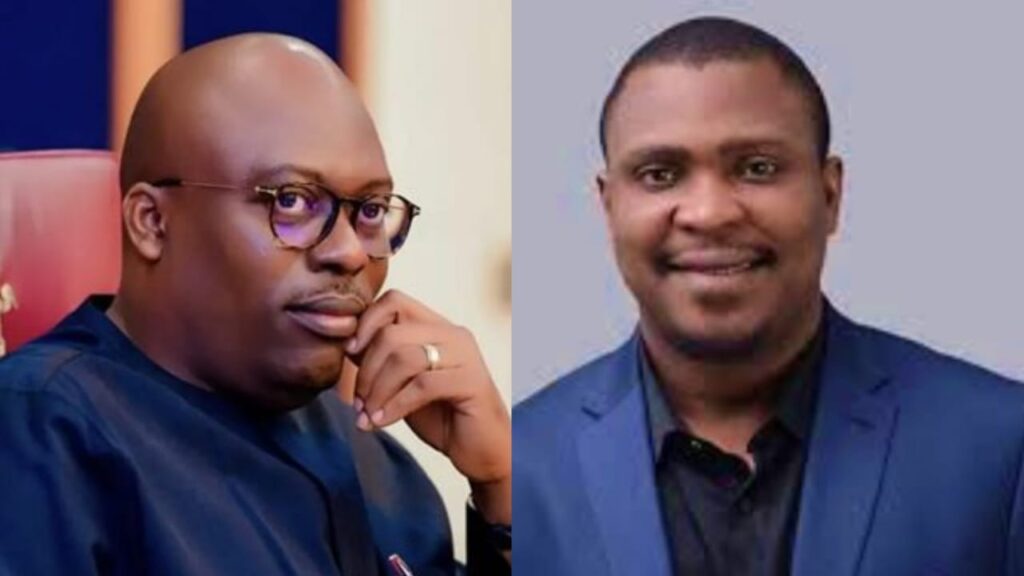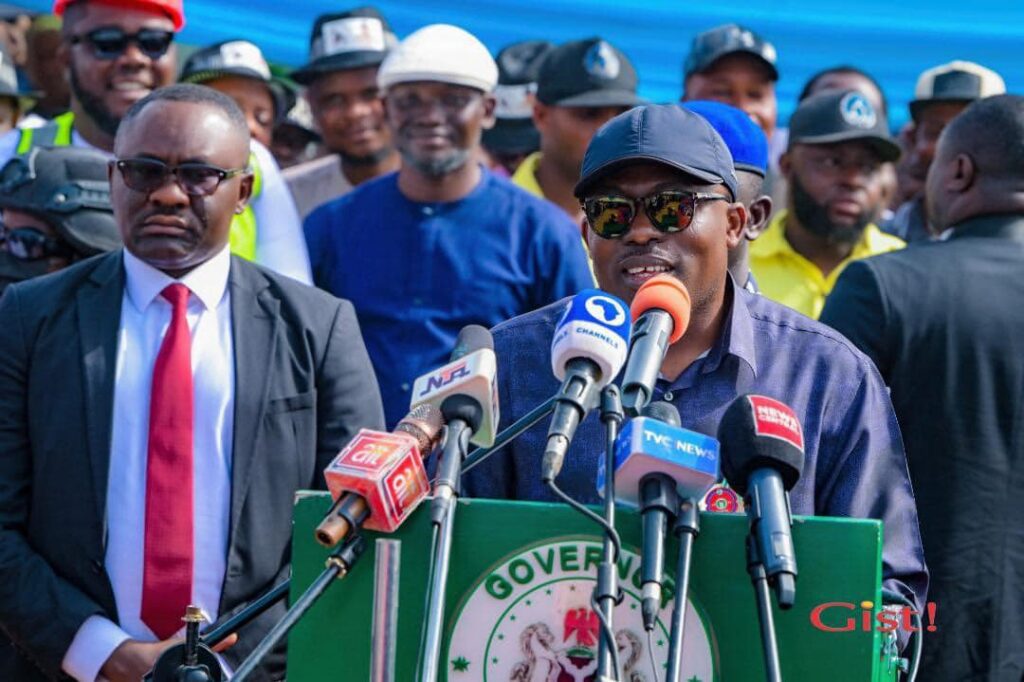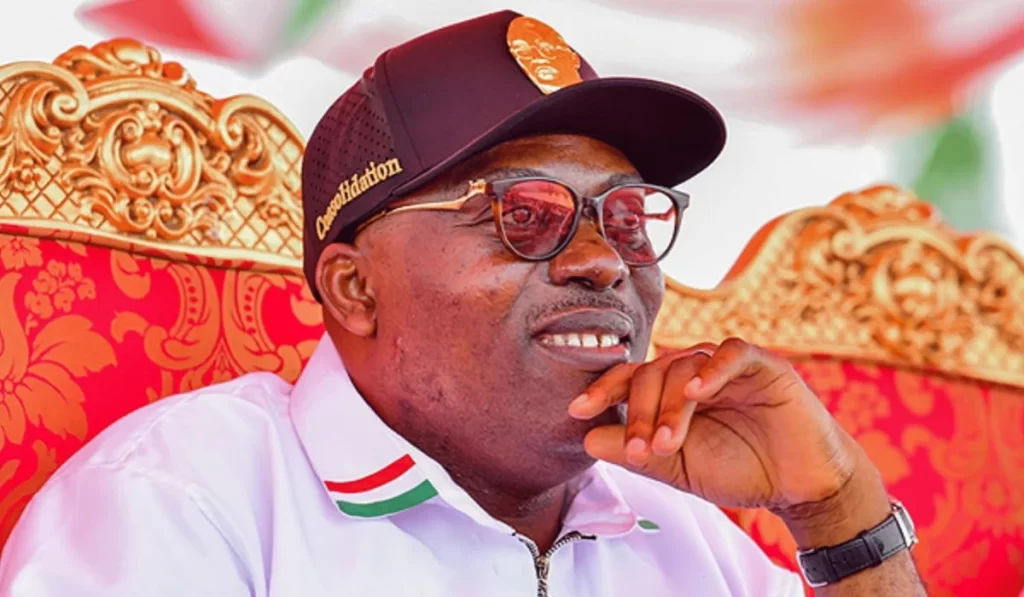Headlines
BREAKING: Fubara Emerges Victorious in Court Case Against Pro-Wike Lawmakers

In the swirling maelstrom of political turmoil, a beacon of triumph shines as Fubara emerges victorious in a court case against pro-Wike lawmakers. This dramatic legal battle, set against the backdrop of heated political discord, has not only fortified Fubara’s stance but also reverberated across the regional and national political landscapes.
Understanding the Context
To grasp the gravity of this court case, one must first understand the deep-seated political tensions that have gripped the region. At the heart of this conflict stand two towering figures: Fubara, a determined leader advocating for change, and Wike, a formidable force with staunch legislative allies.
The Genesis of the Dispute
The origins of this legal confrontation trace back to escalating disagreements over governance and policy directions. Pro-Wike lawmakers, loyal to their political patron, consistently challenged Fubara’s initiatives, leading to an inevitable clash.
Fubara’s Legal Battle Begins
Fubara, steadfast in his convictions, took the battle to the courtroom, seeking justice against what he deemed unlawful opposition tactics. The case was built on robust legal grounds, alleging that the pro-Wike faction had overstepped their boundaries and violated procedural norms.
READ ALSO: River Crisis: Jonathan Urges Fubara and Wike to Reconcile and Collaborate
Inside the Courtroom
The courtroom became a stage for high-stakes drama. Fubara’s legal team presented compelling arguments, meticulously outlining the breaches of law committed by the opposing lawmakers. The defense, representing the pro-Wike camp, employed strategies aimed at discrediting Fubara’s claims and justifying their actions.
The Turning Points
Several pivotal moments marked the trial. Key witnesses provided damning testimonies, and critical pieces of evidence were unveiled, tilting the scales in Fubara’s favor. Each day in court brought new revelations, keeping the public on edge.

Public Reaction
The case captivated the media, with headlines blaring updates and analysis. Public opinion was sharply divided, with fervent supporters on both sides voicing their views. Political analysts dissected every development, predicting the potential outcomes and implications.
The Verdict
When the court finally delivered its verdict, the atmosphere was electric with anticipation. The decision favored Fubara, a resounding affirmation of his legal stance. Cheers erupted from his supporters, while the pro-Wike camp absorbed the blow with visible dismay.
Implications for Fubara
This legal victory has significantly bolstered Fubara’s political position. It has reinforced his credibility and empowered him to pursue his agenda with renewed vigor. The court’s decision could lead to substantial policy shifts and governance reforms under his leadership.
Impact on Pro-Wike Lawmakers
For the pro-Wike lawmakers, the court’s ruling is a stark setback. They must now regroup and reassess their strategies. This defeat may prompt a shift in their approach, potentially leading to more conciliatory or strategic moves in future political battles.

Broader Political Ramifications
The ramifications of this case extend beyond immediate parties involved. Regionally, it could alter the political dynamics, influencing alliances and power structures. Nationally, it sets a precedent for similar legal challenges, highlighting the judiciary’s role in mediating political conflicts.
Expert Opinions
Legal experts have praised the ruling for its adherence to justice and procedural integrity. Political analysts believe this victory enhances democratic principles by holding lawmakers accountable. It underscores the importance of legal recourse in resolving political disputes.
Fubara’s Next Steps
With the court’s endorsement, Fubara is poised to implement his vision more assertively. Strategic initiatives and reforms are likely on the horizon, aimed at consolidating his gains and fulfilling his electoral promises. His leadership will now be closely watched, as he navigates this post-victory phase.
A Victory Beyond the Courtroom
Fubara’s triumph transcends the legal realm; it is a symbol of resilience and democratic perseverance. It sends a powerful message about the rule of law and the ability to challenge entrenched political interests. This victory inspires not just his supporters but all who believe in justice and fair play.
Conclusion
The court’s decision marks a significant milestone in Fubara’s political journey. It underscores the power of legal avenues in upholding justice and curbing political overreach. As Fubara charts his course forward, this victory will serve as a cornerstone of his legacy, a testament to his determination and the democratic process.

FAQs
What were the main legal arguments in Fubara’s case?
Fubara’s legal team argued that the pro-Wike lawmakers had violated procedural norms and engaged in unlawful opposition tactics, undermining the principles of fair governance.
How did the public react to the court’s verdict?
Public reaction was mixed but intense, with Fubara’s supporters celebrating the victory while the pro-Wike camp expressed disappointment and concern over future political strategies.
What are the potential impacts on future legislation?
The ruling could influence future legislative processes by reinforcing the need for adherence to legal and procedural standards, potentially leading to more transparent and accountable governance.
How might this case affect the relationship between Fubara and Wike?
The case has likely strained the relationship further, making reconciliation difficult. However, it might also lead to a re-evaluation of strategies and alliances by both parties.
What can other politicians learn from this case?
This case highlights the importance of legal avenues in resolving political disputes and upholding democratic principles. It serves as a reminder that accountability and justice are crucial in political engagements.
